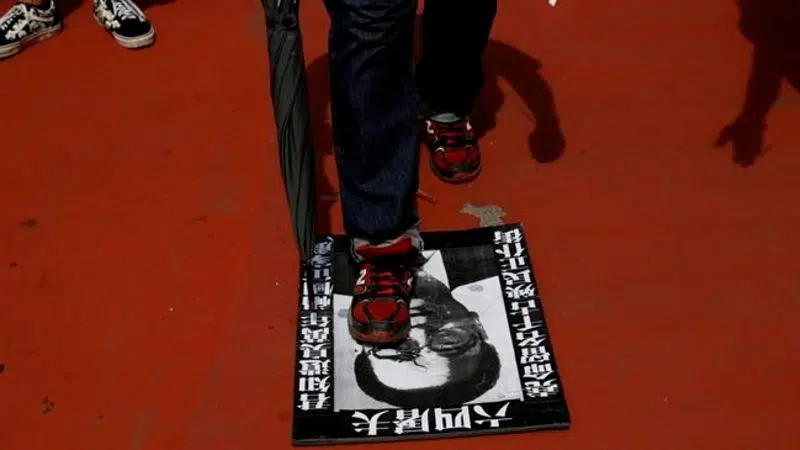
Hong Kong police fire tear gas after protesters defy ban
HONG KONG — Police in Hong Kong fired tear gas Saturday at protesters who defied authorities’ warnings not to march in a neighbourhood where six days earlier a mob apparently targeting demonstrators brutally attacked people in a train station.
Protesters wearing black streamed through Yuen Long, even though police refused to grant permission for the march, citing risks of confrontations between demonstrators and local residents.
For the protesters, it was a show of defiance against the white-clad assailants who beat dozens of people last Sunday night, including some demonstrators heading home after the latest mass protest in the summer-long pro-democracy movement. Police said some of the attackers at the train station were connected to triad gangs and others were villagers who live in the area.
The streets of Yuen Long became a sea of umbrellas as the march began Saturday afternoon. A symbol going back to the Occupy Central protests that shook Hong Kong in 2014, umbrellas have become tools to help protesters conceal their identities from police cameras as well as shields against tear gas and pepper spray. Some also wore masks to obscure their faces.


